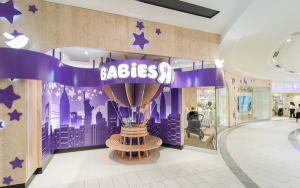Put the human touch back into AI-powered marketing automation by affirming these values.
Marketers are using more automation tools to improve workflow efficiency and scale campaigns. But they have to remember that they’re marketing to humans, and that customers expect a human touch.
There are three main values that customers expect at every touchpoint, according to CEO and founder of B2B marketing consultancy Simple Strat, Ali Schwanke, who spoke at The MarTech Conference. If marketers communicate these values, customers will be reassured that there is a human behind the automated tools.
“There’s a reason why this year every company is getting back to strategy and innovation,” said Schwanke. “We’ve got the technology. Now, what the heck do we do with it to make sure we stand out and we don’t come across as a league of robots?”
Customers expect empathy
The first value is empathy. Customers want to feel like they’re being understood by a brand and that marketers are listening.
“Can you put yourself in my shoes as a customer?” Schwanke asked. “Have you looked at all the emails you’re sending me and read them with a human voice?”
She added, “We have to keep this in mind as we’re designing marketing automation and workflows and follow-ups and integrations, in order to better serve the customer.”
Yes, marketers have goals to meet. They’re trying to generate leads and conversations. But the real needs are those of the consumer, and they need to feel like they’re not a number.
Customers value transparency
Customers need to be able to trust the brand they’re communicating with. Trust is the foundation of a relationship with the customer.
To build that trust, brands need to be transparent about how they use customer data. And beyond that, they should give customers an idea of next steps in their journey.
“If it says ‘sign up now’ and I don’t really know what’s coming next, [I’m wondering if] you are somehow going to find my credit card information again.” said Schwanke.
Customers can’t see behind the hood of your marketing automation tools, so transparency about next steps is crucial.
“There’s a lot of suspicion out there about how all of that stuff works, so transparency is very important,” Schwanke said.
Customers require responsiveness
And finally, customers want to hear back from the communications they send to the brand. That’s the ultimate reassurance that shows they’re being listened to by a human.
Automation and AI-powered personalization can alienate a customer if that customer asks a question back and doesn’t receive an adequate response.
For instance, if a personalized email comes into an inbox with the customer’s name, and that customer can’t respond without getting the email kicked back, then they will think it’s a scam.
It’s up to marketers to take any surprises out of the customer relationship by being empathetic, transparent and responsive.
“We live in a world where everything ahead of us is somewhat predictable,” said Schwanke. “We live in a very ‘surprise-less’ culture, and so customers have to know what’s ahead. You have to communicate with me (as a customer), and I don’t want to be treated like a number.”
Bringing the human back into marketing automation and the customer journey from Third Door Media on Vimeo.
The post 3 things customers expect from marketers to prove that they’re human appeared first on MarTech.
MarTech(8)






